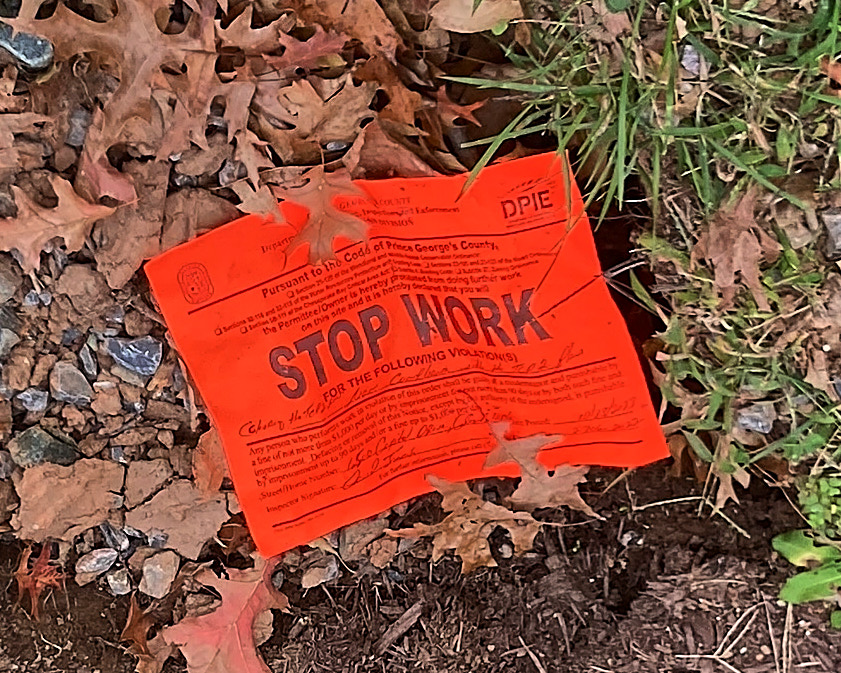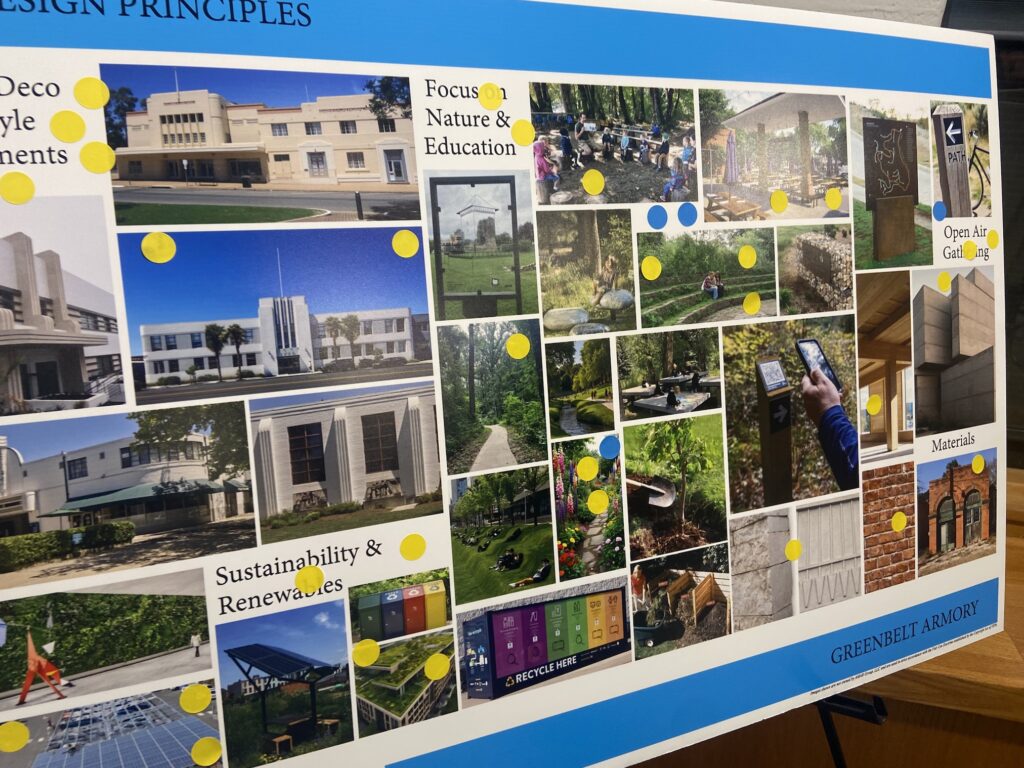The Royal Farms project was put temporarily on hold October 13 due to a violation of city and county requirements for the preservation of a historic site.
Despite the opposition of the City of Greenbelt, the Prince George’s County Planning Board in 2020 approved the building of a Royal Farms store selling gas and fast-food chicken on Greenbelt Road. The development of the site has begun with the clearing of a large area of woodlands, as many Greenbelters will have noted when driving by and as pictured in the October 12 issue of this paper.
However, the planning approval given to Royal Farms was contingent on the builder’s observing a number of conditions, one of which was the preservation of the historic Toaping Castle site.
The 64-acre plantation, patented in 1757, was originally built of logs. The home of Isaac Walker and his family expanded over the years into a larger wood-framed structure, the hub of a small plantation worked by those they enslaved, which reached a size of 169 acres. He and his descendants occupied it from the mid-1700s until 1933. In 1935, the property was purchased by the federal government as part of the Greenbelt project. A few years after federal ownership ended, it was sold into private hands. One of a succession of owners demolished the surviving building in the mid-1960s. Visible ruins remained of the foundations and a cellar hole.
Royal Farms’ 2020 proposal to develop the property triggered a careful archaeological examination of the site, which found a dense accumulation of architectural remains and historic artifacts. As a result, Toaping Castle was officially designated a Prince George’s County Historic Site.
The approval for Royal Farms to go ahead with their proposal was given by the county in January 2021. It states that the historic site “is to be preserved.” A more detailed section cites the Planning Board’s adoption of a series of recommendations from the Historic Preservation Commission which include, among others, the use of a “super silt fence around the historic site during construction” to prevent damage.
Representatives of Greenbelt’s Planning and Community Development office along with a representative of the historic preservation section of the County’s Planning Department, visited the Toaping Castle site on October 10 and saw that no such fence was in place and that there was damage to the site. They found that the contractor’s work was clearly outside the permitted actions. On October 13, the city and the county’s Department of Permitting, Inspections and Enforcement imposed a stop work order to be in force until the super silt fence was erected around the entire historic site area.
Will there be other consequences? “Yes,” said Terri Hruby, director of planning and community development. Fines are likely to be imposed, she said, by city and/or county authorities.
As of October 17, there is now protective fencing around the Toaping Castle site and the stop work order has been lifted.




